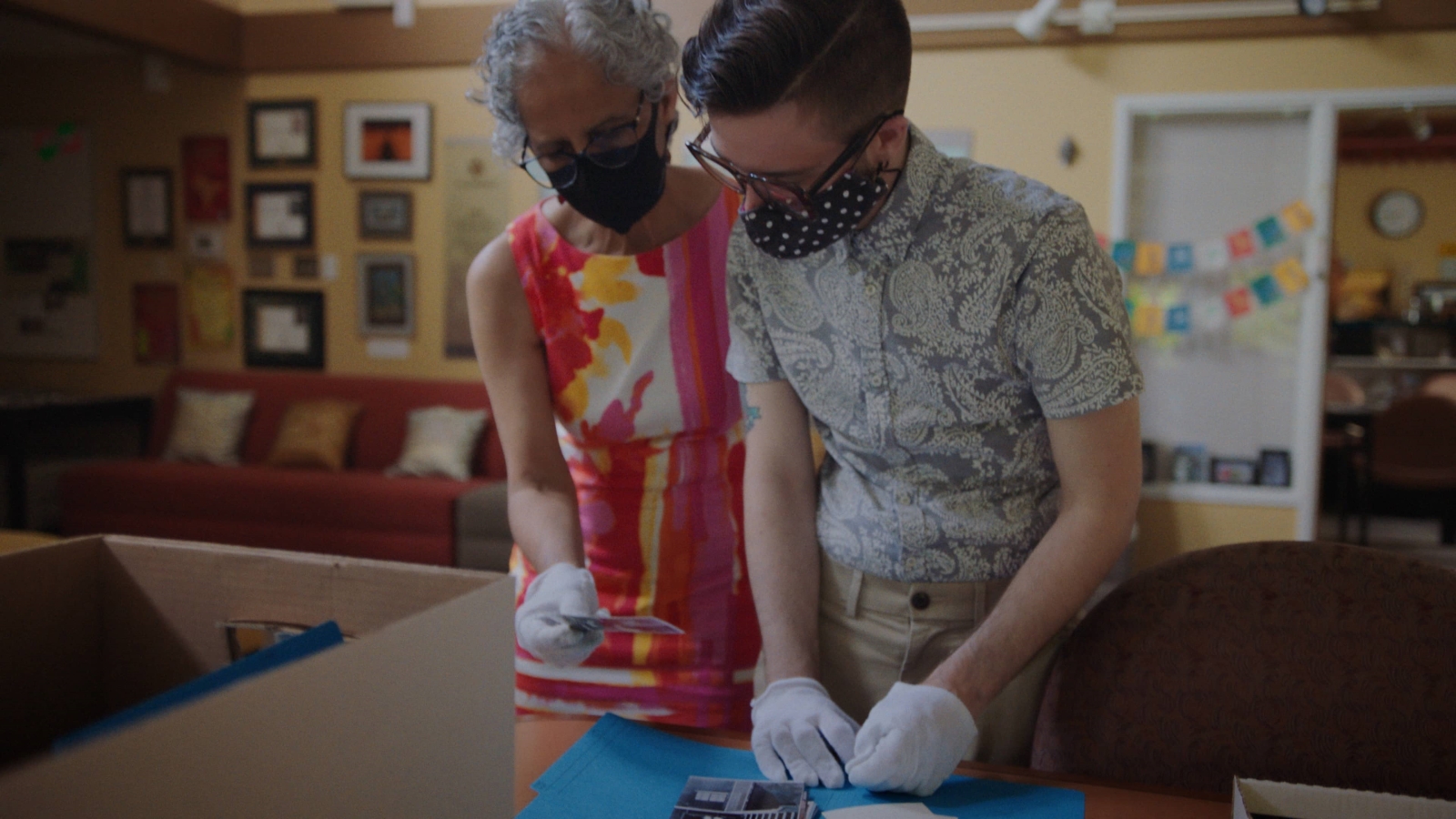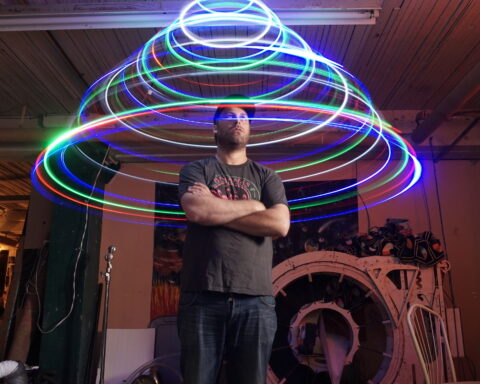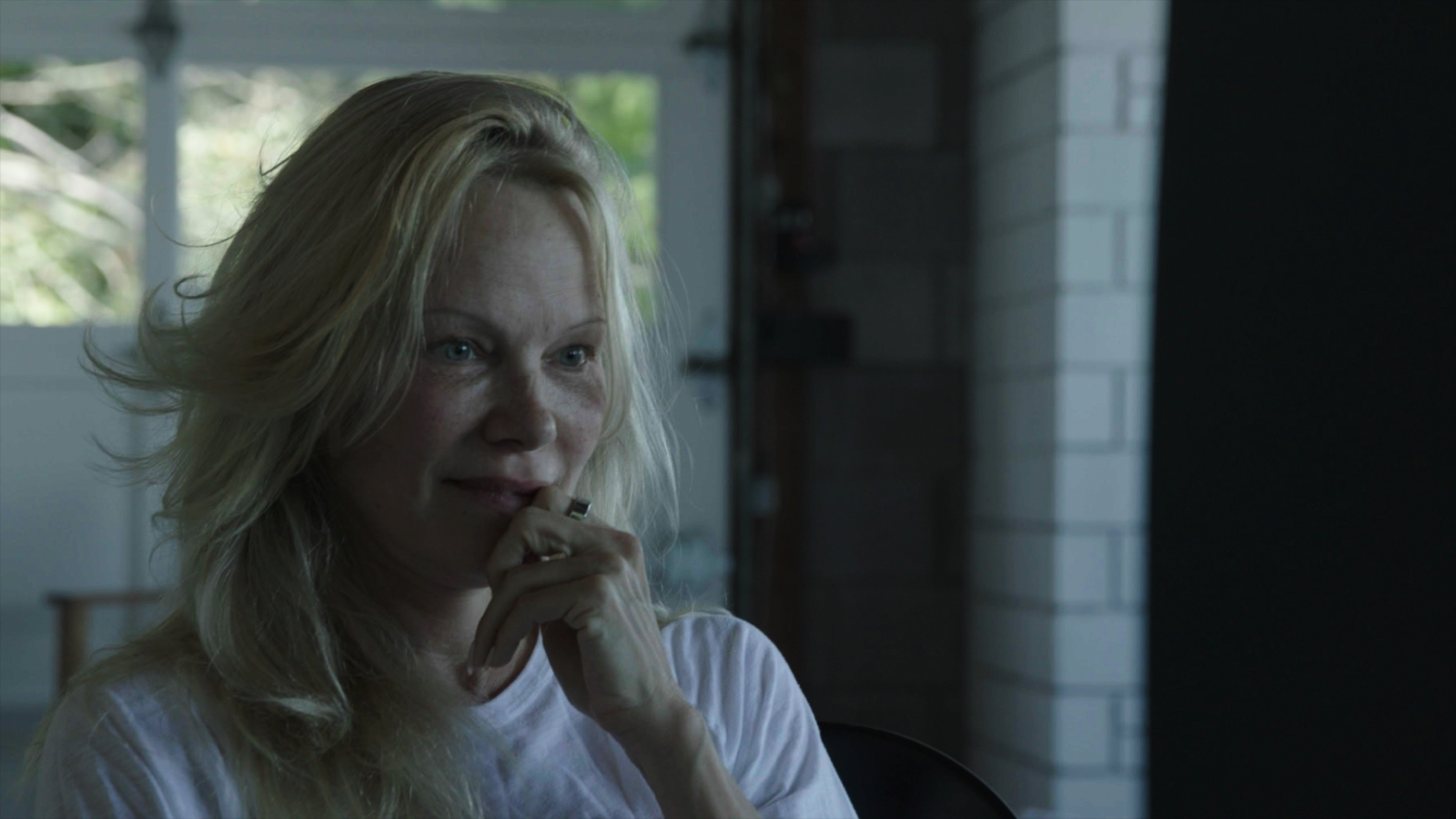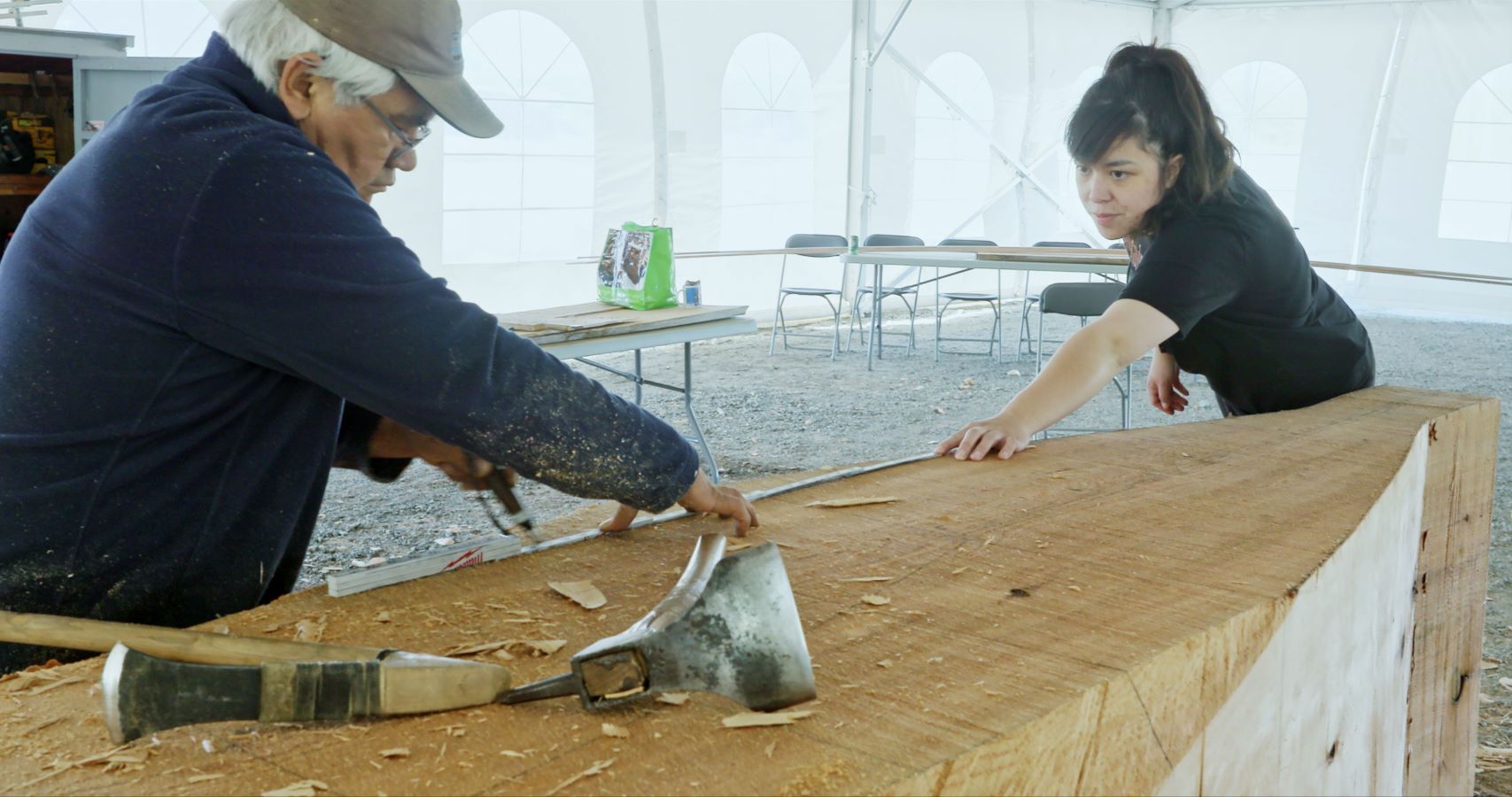Unarchived
(Canada, 84 min.)
Dir. Hayley Gray, Elad Tzadok
If there’s a crime worse than historical erasure, it’s never having one’s history recorded at all. The NFB documentary Unarchived, directed by Hayley Gray and Elad Tzadok, offers case studies in the gaps in British Columbia’s documented history. The doc spotlights communities with a history of invisibility in public archives. By zeroing in on the province’s off-the-books LGBTQ+ history, the under-documentation of South Asian communities, the absence of East Asian records, and the dislocation of First Nations’ artifacts, Unarchived considers the systemic neglect of people’s histories by the state. It’s a thoughtful study in the power of representation, the right to belong, and the right to exist. The absence of archives speaks volumes about this history of inequity in Canada.
Unarchived notes the grassroots efforts to create personal archives when official ones don’t exist. The first chapter looks at the work of Ron Dutton with the B.C. Gay and Lesbian Archive. Dutton tells the filmmakers about his campaign to preserve history by preserving flyers from the streets and filing any pamphlet he could. His collection of photographs of marches and protests document a collective history when few newspaper clippings tell the story of the fight for equal rights.
These stories echo in the work of Dr. Aaron Devor of the Trans Archive at the University of Victoria. The history of transgender experience is almost entirely absent from Canada’s books. Among the most notable points unearthed in Unarchived is the source of much of queer history: police records. Documentation of queer lives, and the oppression people faced, is most evident in the arrest records that detail the criminalization of being oneself. This research also takes an intersectional approach to archival work. Their motivation to unearth trans history inspires them to seek stories outside the norm.
Towards a More Inclusive History
Currents of racism in the archives similarly fuel the story of Dr. Satwinder Kaur Bains. Her work with the South Asian Canadian Digital Archive seeks to connect families with the fragments of the past. By scanning the comparatively few elements that record the experiences of early South Asian immigrants in Canada, Dr. Kaur Bains strives to write these names back into history. She makes records and photos accessible to the descendants of these previously unarchived names.
Sandra Marion, meanwhile, visits archives in urban centres to see artifacts of her people’s history housed behind glass for white eyes. Marion speaks to the necessity of repatriating and relocating these records to connect First Nations communities to their roots. This thread, in which Gray and Tzadok show the most investment, captures the inherent colonial dynamic of the archival process. Questions of ownership, access, power, and control arise throughout these stories, though, as Unarchived offers thoughtful considerations of the politics of record keeping. Ironically, the focus on these four stories is an act of curation itself. Unarchived chooses four stories among many, although absences of other perspectives invite further exploration.
The approach is admittedly a bit didactic with its talking heads style, which COVID production restraints limit somewhat further. However, contemporary events add some urgency to the participants’ efforts to ensure their communities are reflected. By highlighting historical absences, Unarchived speaks to contemporary narratives of resilience. The film encourages audiences to aspire towards a history that is more democratic and inclusive.













